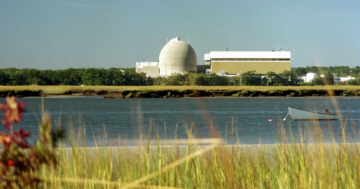Self-destructing plastic. Lionfish leather. Biomimetic oyster reefs.
Five startups pitched these and other solutions at the first Bloom Accelerate contest in San Jose, California, on Wednesday.
Nature tech startups are on the rise. This $7.5 billion market has surged from $1 billion in 2018, according to a report from Nature4Climate released Wednesday. That’s a fraction of the overall market for climate tech: $40 billion now versus $430 million five years ago, according to the report.
The Bloom Accelerate winner won entry to the VERGE Accelerate pitch competition Thursday, which awarded a first-place prize of $20,000 in the form of a simple agreement for future equity (SAFE). Second and third-place winners received $10,000.
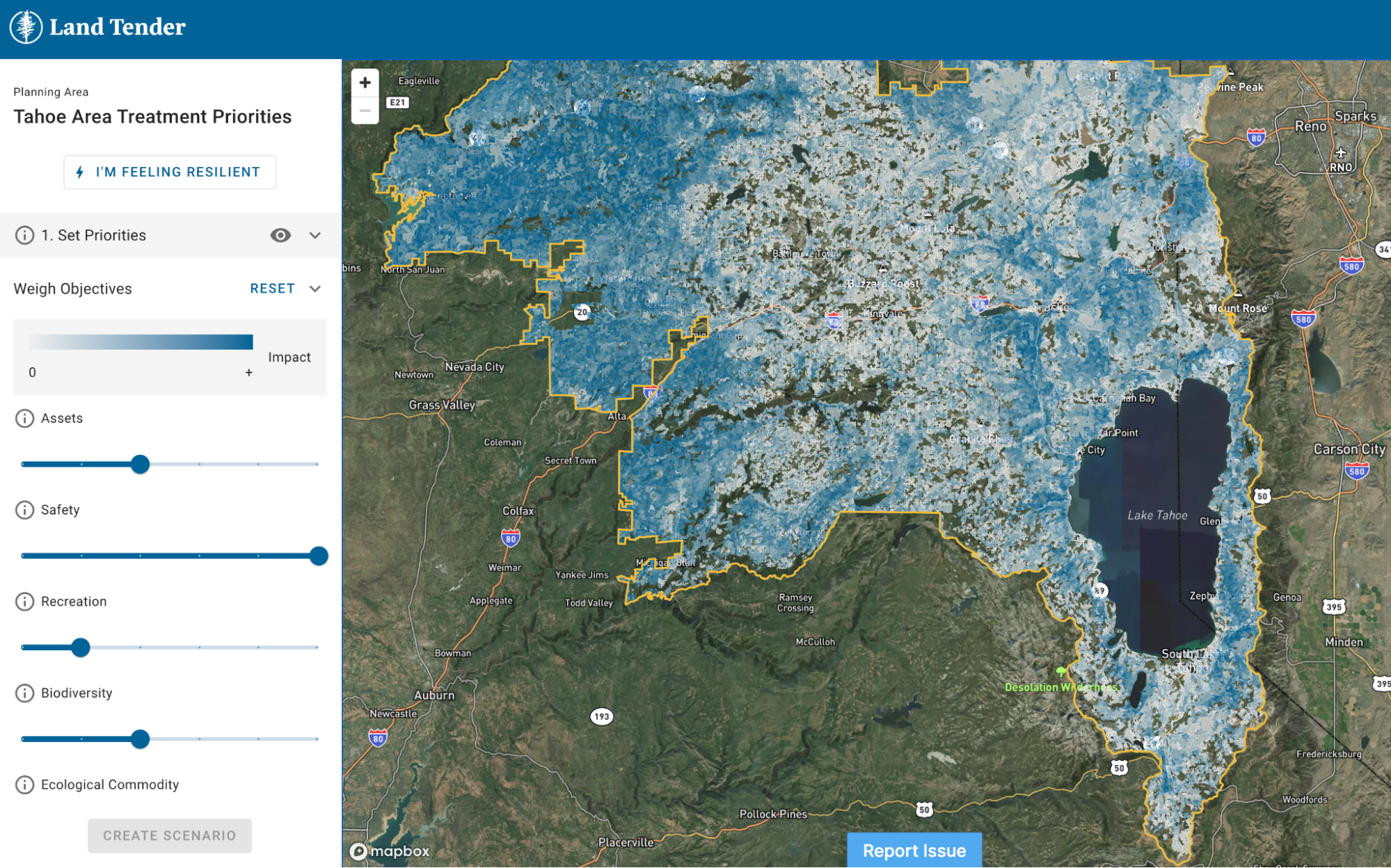
![]()
![]()
![]()
![]()
Vibrant Planet
In the Western United States, 240 million acres and 1,800 communities are at risk from severe wildfire, largely because the controlled burns that Indigenous groups practiced for 20,000 years ended in the last two centuries, according to Allison Wolff. The CEO of Vibrant Planet spoke of “creating a global platform to restore very high-risk landscapes in fire-adapted ecosystems, which is about half of land on Earth.”
“And we are in a race against time to restore ecosystem and community resilience across the western U.S. and [the] globe,” in part by managing trees to save forests, she said. The Truckee, California-based public-benefit corporation aims to manage risk by restoring ecosystem services, in part through removing trees to save forests.
The company uses machine learning to monitor conditions at a fine scale. It works with the U.S. Forest Service and Bureau of Land Management as well as utilities and counties to prioritize resources and “get the most bang for the buck in terms of ecological services enhancement,” she said.

![]()
![]()
![]()
![]()
Ecobot
“We believe that we can help global companies meet their nature-positive goals, with environmental permitting as the market driver,” said Lee Lance, CEO of Ecobot. “We’re building the expert network data that we need to build better technology, enhanced by AI.”
Ecobot, a startup based in Asheville, North Carolina, seeks to close a gap in measuring biodiversity: It’s unrealistic to send 100,000 scientists into the field, but that many are already in the field collecting data for permitting purposes.
“But a permit is where data goes to die,” Lance said. “All of the water and soil and vegetation data that is gathered is either siloed with an organization or just simply lost.”
Ecobot has a “workforce enablement platform” that accelerates environmental permitting.
Its 250 customers include AECOM, the Environmental Protection Agency and the Department of Agriculture.
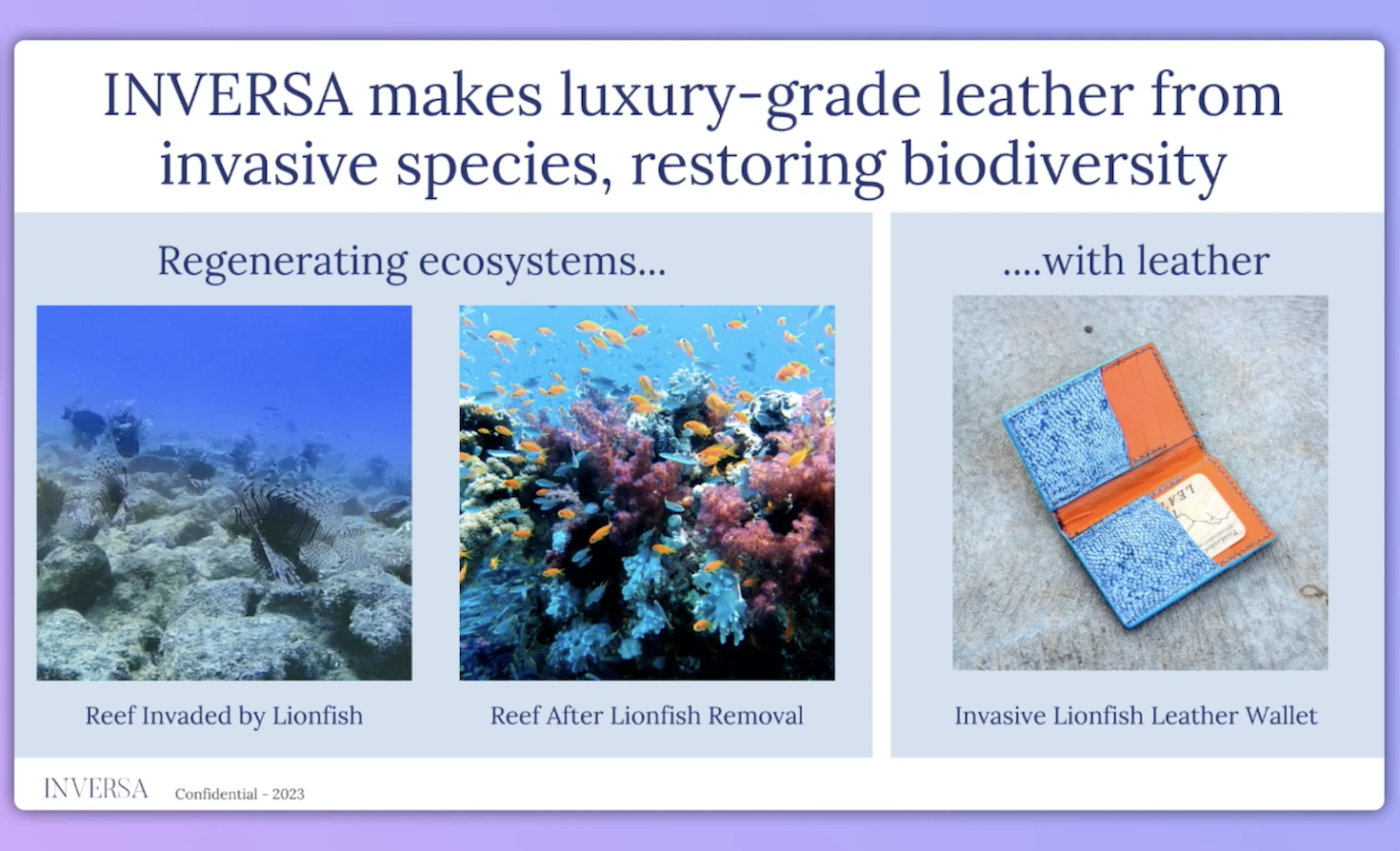
![]()
![]()
![]()
![]()
Inversa makes leather for apparel and purses out of invasive lionfish, dragonfin, angelfish and python. The Shalimar, Florida-based startup blames native species for 60 percent of contemporary extinctions and says it has saved nearly 2 billion native animals.
“This is the first material that restores biodiversity, in a highly effective — and for our clients — a highly marketable way,” said Roland Salatino, Inversa co-founder and COO. “And now the $100 billion leather market finally has a material they can use to hit their ESG commitments … Our client brands get to tell their consumers for the first time ever, the world is actually better off; you save 70,000 native reef fish because this pair of shoes exists.”
Inversa, which is raising $3 million on a $15 million valuation, hopes to attract a buyout eventually from a luxury giant such as LVMH, Salatino said. Funding partners include Conservation International, the National Oceanic and Atmospheric Administration and Superorganism.
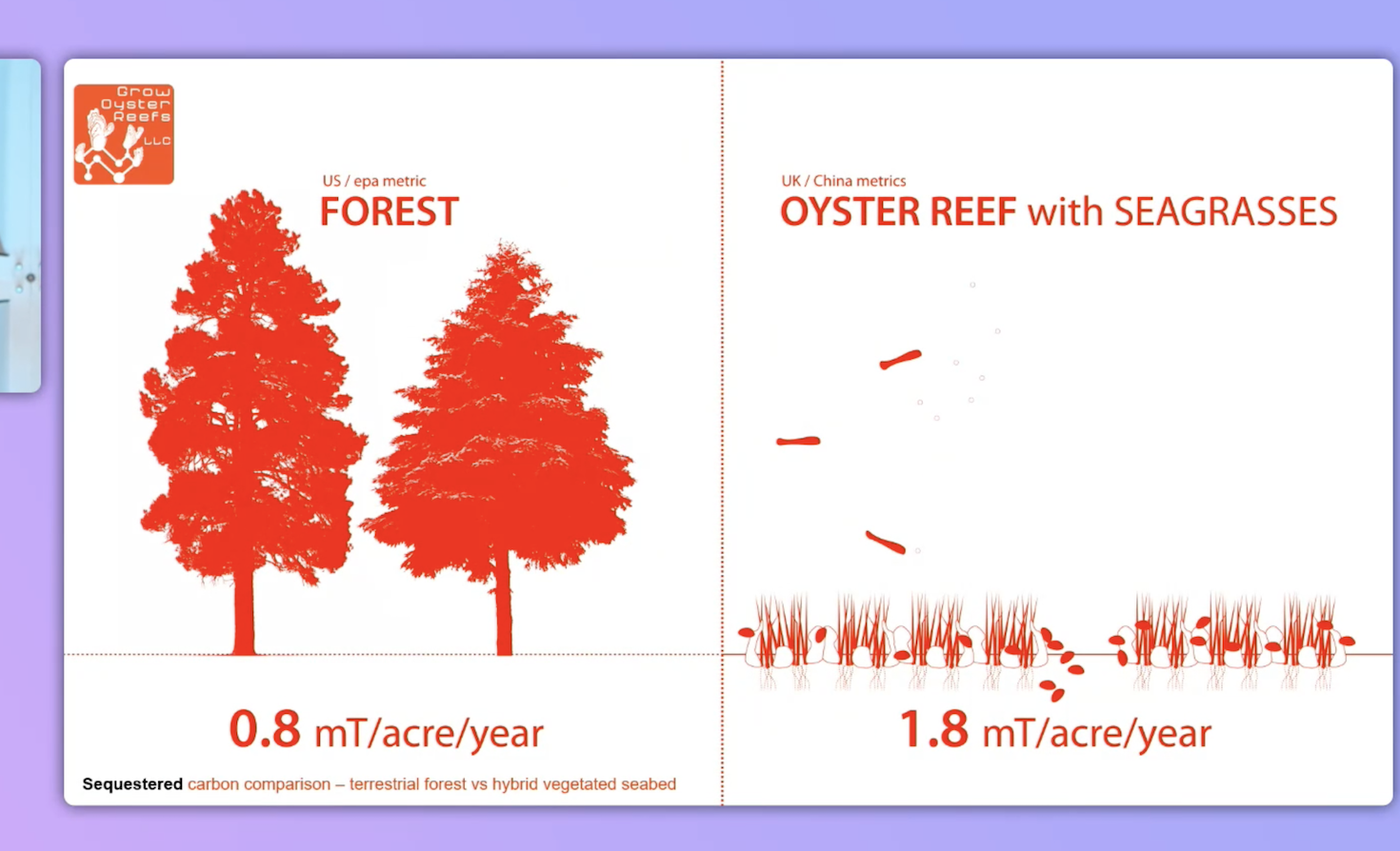
![]()
![]()
![]()
![]()
Grow Oyster Reefs
Oyster reefs house 350 species, sequester carbon and purify water, but they’re in decline by 85 percent, said Evelyn Tickle, founder and CEO of Grow Oyster Reefs.
The company builds modular reefs out of an 85-percent calcium carbonate material that resembles that of oyster shells. “That is set up so that the oysters grow in their natural configuration to regenerate reefs and to hopefully go on to the seabed, and so that they are ever growing reefs,” she said.
The startup is creating a mold to assemble reef tiles into 160 units, and is working on a flexible mat to cover the cable arrays, said Tickle, an architect with 20 years in concrete fabrication.
After one year the company’s biomimetic reef attracted 100 oysters per square foot, Tickle said. Grow Oyster Reefs seeks to help seagrasses and mangroves regenerate as well. Partners include The Nature Conservancy and the U.S. Fish and Wildlife Service. It’s working with Dominion Energy and Duke Energy to scale its product.
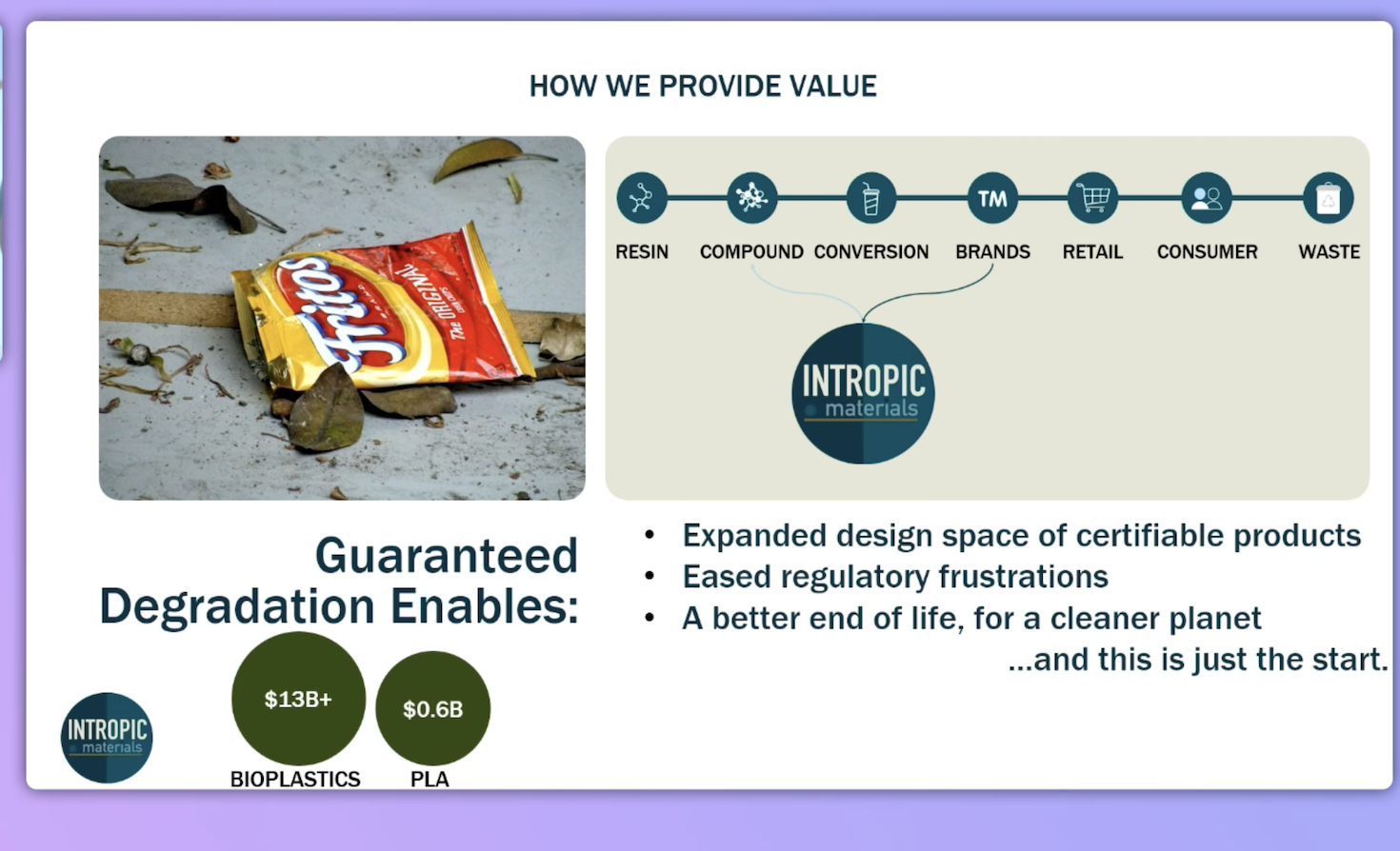
![]()
![]()
![]()
![]()
Intropic Materials
What if plastic could self-destruct and disappear?
Intropic Materials seeks to make compostable plastics that don’t pollute. It’s using nanotechnology to stabilize and then embed enzymes into materials that degrade without producing microplastics, according to its CEO, Aaron Hall.
The Oakland, California, company seeks to expand the design space for certifiably compostable products and packaging. Its technology has appeared in peer-reviewed journals including Science.
“We have a number of wonderful value props around scalability and drop-in, low usage levels and fast degradation in both warm water baths and compost environments, which are easy and accessible,” said Hall, a materials science and engineering Ph.D.
“We’re bringing this to market by designing products that are inherently better, so that brands no longer have to have their faces on waste,” he said. “We’re going to clean up chemical manufacturing and a number of other industries as well.”
The experts
Experts from nature-tech-focused investment firms provided context after the startup pitches.
Nature tech startups increasingly are bringing “extreme credibility” and talent in technology, conservation and ecology, according to Tom Quigley, co-founder and managing director of Superorganism. “That is a really marked difference that we see from three, five, 10 years ago.”
Rachel Lim, impact investment associate at Silverstrand Capital, named recent market drivers for nature tech, including the 2022 Kunming-Montreal Global Biodiversity Framework and the U.N. High Seas Treaty made in March. She noted additional credibility from the Science Based Targets Network (SBTN), which launched the first science-based targets for nature in May, and the Taskforce on Nature-related Financial Disclosures (TNFD), which in September published nature-related recommendations for corporations and banks.
Quigley favored the pitch of Vibrant Planet for involving multiple stakeholders in “a complex mosaic of land work” to address megafires. (He recused himself from commenting about Inversa because his firm invests in it.)
Lim liked Inversa in part for bringing the problem of invasive species to the conversation about biodiversity.
The popular vote
Members of the Bloom Accelerate audience voted on an app for a different winner: Intropic Materials.
- SEO Powered Content & PR Distribution. Get Amplified Today.
- PlatoData.Network Vertical Generative Ai. Empower Yourself. Access Here.
- PlatoAiStream. Web3 Intelligence. Knowledge Amplified. Access Here.
- PlatoESG. Carbon, CleanTech, Energy, Environment, Solar, Waste Management. Access Here.
- PlatoHealth. Biotech and Clinical Trials Intelligence. Access Here.
- Source: https://www.greenbiz.com/article/lionfish-leather-pollution-free-plastic-and-more-whats-your-pick
- :has
- :is
- :where
- $1 billion
- $3
- $UP
- 000
- 1
- 10
- 100
- 15%
- 160
- 1999
- 20
- 20 years
- 2018
- 2022
- 23
- 250
- 60
- 70
- a
- Aaron
- About
- accelerate
- accelerates
- accessible
- According
- acres
- across
- actually
- Additional
- address
- administration
- After
- against
- agency
- ago
- Agreement
- agriculture
- AI
- aims
- All
- already
- an
- and
- animals
- app
- apparel
- appeared
- ARE
- around
- AS
- Associate
- At
- atmospheric
- attract
- attracted
- audience
- awarded
- Banks
- based
- because
- believe
- Better
- Billion
- Bloom
- both
- brands
- Bringing
- build
- Building
- builds
- Bureau
- burns
- but
- Buyout
- by
- cable
- california
- CAN
- capital
- carbon
- Carolina
- Center
- centuries
- ceo
- chemical
- click
- client
- clients
- Climate
- Close
- Co-founder
- Collecting
- Commenting
- commitments
- Communities
- community
- Companies
- company
- Company’s
- competition
- complex
- conditions
- Configuration
- CONSERVATION
- Consumers
- contemporary
- context
- controlled
- Conversation
- coo
- CORPORATION
- Corporations
- could
- cover
- Creating
- Credibility
- Customers
- data
- Decline
- Department
- Design
- designing
- Die
- difference
- different
- Director
- disappear
- Disclosures
- dominion energy
- Dont
- driver
- drivers
- Duke
- Duke Energy
- earth
- easy
- Ecological
- ecosystem
- Ecosystems
- Effective
- either
- embed
- enablement
- ended
- energy
- Engineering
- enhanced
- enhancement
- entry
- environmental
- Environmental Protection Agency
- environments
- equity
- ESG
- Ether (ETH)
- eventually
- EVER
- exists
- Expand
- expert
- extreme
- faces
- FAST
- field
- Finally
- financial
- fine
- Firm
- firms
- First
- first time
- Fish
- five
- flexible
- Foot
- For
- forest
- form
- founder
- Founder and CEO
- fraction
- from
- funding
- future
- gap
- gathered
- get
- giant
- Global
- globe
- Go
- Goals
- Goes
- going
- Group’s
- Grow
- Growing
- Half
- Hall
- Have
- he
- help
- High
- high-risk
- highly
- his
- Hit
- Hopefully
- hopes
- House
- HTTPS
- if
- Impact
- in
- include
- Including
- increasingly
- industries
- inherently
- International
- into
- invasive
- investment
- investment firms
- Invests
- involving
- IT
- ITS
- just
- Land
- largely
- Last
- launched
- learning
- Lee
- levels
- longer
- lost
- Low
- Luxury
- lvmh
- machine
- machine learning
- made
- make
- MAKES
- manage
- management
- manager
- managing
- Managing Director
- manufacturing
- many
- March
- marked
- Market
- material
- materials
- May..
- measuring
- Meet
- million
- modular
- Monitor
- more
- most
- move
- multiple
- Named
- nanotechnology
- National
- native
- Natural
- Nature
- nearly
- Need
- network
- Network Data
- no
- North
- north carolina
- noted
- now
- number
- Oakland
- of
- off
- on
- ONE
- or
- organization
- Other
- our
- out
- overall
- Oyster
- packaging
- page
- pair
- part
- partners
- peer-reviewed
- per
- percent
- pick
- Pitch
- pitched
- pitches
- planet
- plastic
- plastics
- platform
- plato
- Plato Data Intelligence
- PlatoData
- Popular
- presentation
- Prioritize
- prize
- Problem
- producing
- Product
- Products
- protection
- provided
- purposes
- Python
- Race
- raising
- RE
- really
- received
- recent
- REEF
- Reefs
- released
- removing
- report
- resembles
- resilience
- Resources
- restore
- restores
- restoring
- Rise
- Risk
- Roland
- s
- safe
- Said
- San
- San Jose
- Save
- saved
- says
- Scalability
- Scale
- Science
- scientists
- Second
- see
- Seeks
- send
- September
- service
- Services
- set
- severe
- she
- siloed
- Simple
- simply
- Slide
- So
- Software
- soil
- Solutions
- Space
- square
- stabilize
- stakeholders
- startup
- Startups
- States
- such
- Surged
- Talent
- targets
- taskforce
- tech
- tech startups
- Technology
- tell
- Tender
- terms
- that
- The
- the world
- their
- then
- These
- they
- this
- three
- Through
- thursday
- time
- to
- tom
- tool
- Trees
- two
- u.s.
- United
- United States
- units
- Usage
- use
- uses
- using
- utilities
- Valuation
- value
- Versus
- very
- vibrant
- voted
- warm
- Waste
- Water
- Way..
- we
- Wednesday
- WELL
- Western
- What
- which
- Wildlife
- winner
- winners
- with
- without
- Won
- wonderful
- Work
- Workforce
- working
- works
- world
- year
- years
- you
- Your
- zephyrnet


